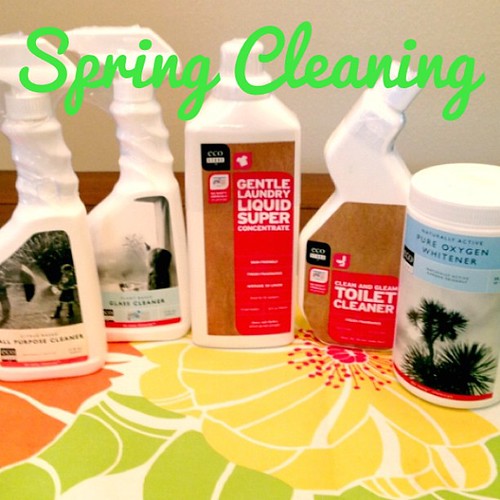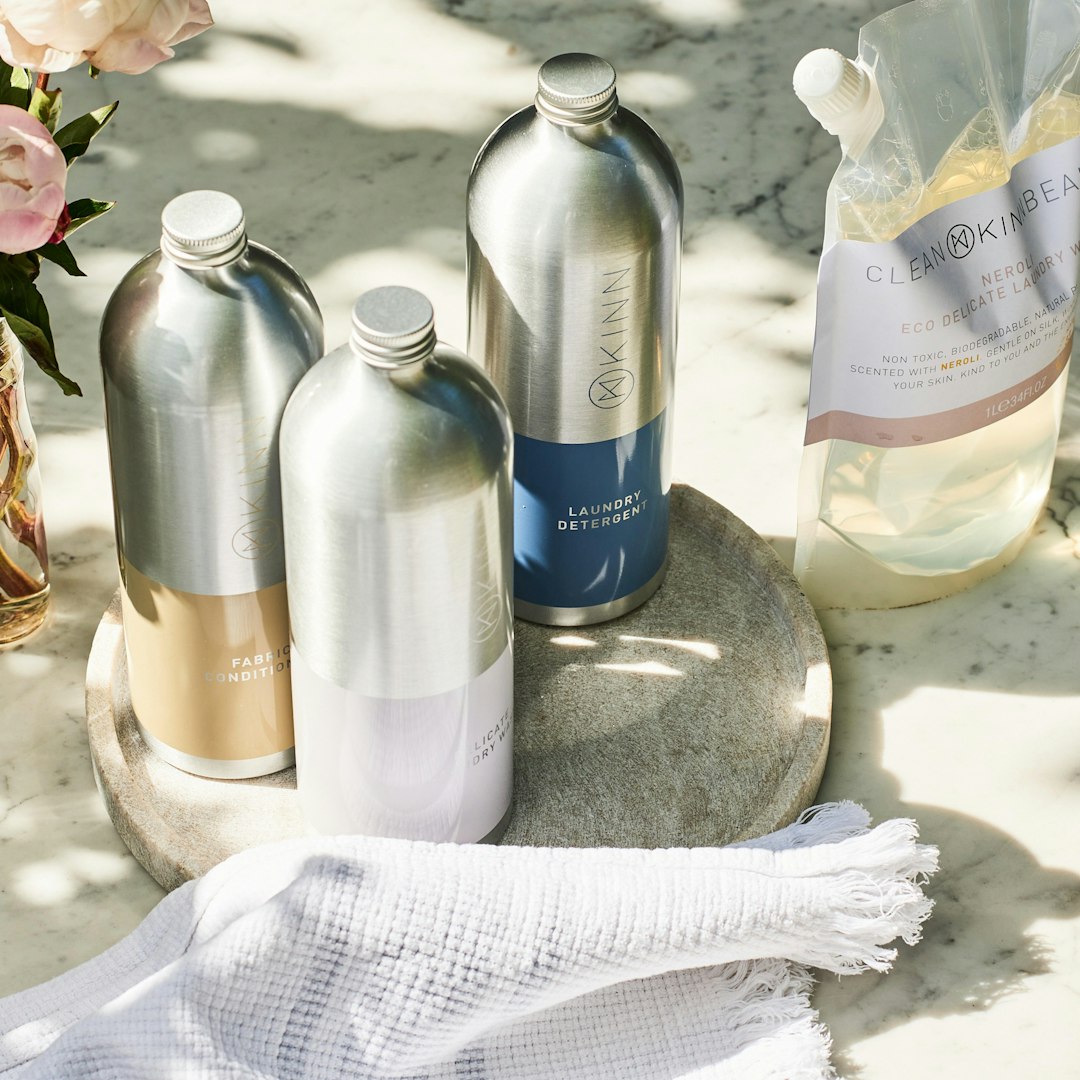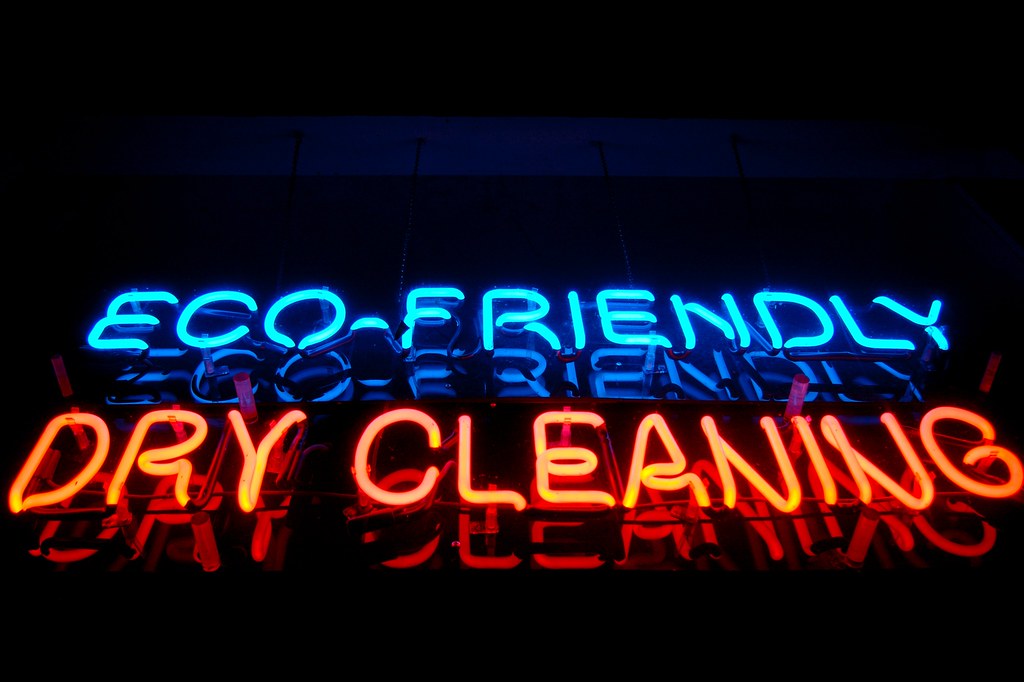Eco-friendly cleaning products are not just a trend but a revolution in the way we maintain our homes and protect our planet. Did you know that conventional cleaning agents contribute significantly to indoor air pollution and can be harmful to our health? This startling fact begs the question: what are the alternatives? Dive into the world of sustainable cleaning solutions that promise a greener, safer home environment. Discover how making the switch can not only benefit the earth but also enhance your living space in ways you never imagined.


Traditional cleaning products often contain a range of chemicals that can have a detrimental impact on the environment. When these substances are washed down our drains, they can end up in rivers, lakes, and oceans, polluting the water and harming marine life. Phosphates, a common ingredient in many cleaners, can cause algal blooms that deplete oxygen in water bodies, killing fish and other aquatic organisms. Volatile organic compounds (VOCs), also found in many cleaning products, contribute to air pollution and can cause health issues in humans and animals. Moreover, the production and disposal of plastic packaging for cleaning products add to the growing problem of plastic pollution. Understanding the environmental footprint of these products is the first step towards making more sustainable choices.
When searching for eco-friendly cleaning products, it's important to know which ingredients are safe and effective. Biodegradable substances, such as plant-based surfactants from coconut or corn, break down naturally in the environment and are less likely to cause harm to aquatic life. Essential oils derived from plants like lavender, tea tree, and citrus not only provide natural fragrance but also possess antibacterial and antifungal properties. Baking soda and vinegar are versatile, non-toxic ingredients that can be used in various cleaning tasks. Additionally, looking for products certified by reputable environmental organizations can help ensure that the products meet strict environmental and health standards. By choosing products with these key ingredients, consumers can reduce their environmental impact while maintaining a clean and healthy home.
| Aspect | Detail |
|---|---|
| Composition | Made from natural, biodegradable ingredients. |
| Chemicals Avoided | Avoids harmful chemicals like phosphates, chlorine, and artificial fragrances. |
| Environmental Benefits | Reduces water pollution, air pollution, and minimizes ozone depletion. |
| Certification | Certified by environmental organizations, such as the EPA in the USA. |
| Packaging | Comes in recyclable or reusable packaging. |
| Cost-effectiveness | Concentrated formulas and multi-purpose usability make them cost-effective in the long run. |
| DIY Solutions | Can be made from vinegar, baking soda, and lemon. |
| Supporting Sustainable Practices | Supports companies committed to sustainable practices. |
| Label Reading | Important to avoid "greenwashing." |
| Indoor Environment | Contributes to a healthier indoor environment by reducing exposure to toxic chemicals. |

In the quest for a greener planet, several brands have made significant strides in producing eco-friendly cleaning products that are not only effective but also kind to the environment. These brands have focused on creating products that minimize ecological footprints, from sourcing sustainable ingredients to using biodegradable packaging. Among the top-rated eco-friendly cleaning brands are Seventh Generation, Ecover, and Method. Seventh Generation is renowned for its comprehensive range of household cleaners that are made from plant-based ingredients and are free from synthetic fragrances, dyes, and artificial brighteners. Ecover, another pioneer in the green cleaning movement, offers a wide variety of products, including laundry detergents and all-purpose cleaners, that are derived from renewable plant-based and mineral ingredients. Method stands out for its commitment to sustainability, offering naturally derived, biodegradable products in recyclable packaging, alongside their innovative refill options to reduce plastic waste. Additionally, other notable mentions include Biokleen, for their concentrated products that reduce shipping impact, and Dr. Bronner's, which is celebrated for its organic and fair-trade ingredients. These brands exemplify the shift towards sustainable cleaning solutions, proving that it is possible to maintain cleanliness and hygiene without compromising the health of our planet.
Eco-friendly cleaning products are not just a choice but a necessity for those who wish to maintain their homes in a sustainable and health-conscious manner. When it comes to modern metal kitchen cabinets, the importance of using green cleaning solutions becomes even more pronounced. These sleek and durable cabinets, which bring a contemporary flair to any kitchen, also require special care to prevent damage from harsh chemicals found in conventional cleaners. Switching to eco-friendly cleaning products ensures that your stylish metal kitchen cabinets remain in pristine condition, without compromising the well-being of your household or the environment. For more insights into modern metal kitchen cabinets, explore more at [Architecture Adrenaline](https://www.architectureadrenaline.com/modern-metal-kitchen-cabinets/).
For authoritative information on eco-friendly cleaning products and guidelines, the Environmental Protection Agency (EPA) offers resources and certifications for products that meet strict environmental standards at https://www.epa.gov/saferchoice.
Creating your own natural cleaning solutions is a cost-effective and environmentally friendly way to maintain a clean and sustainable home. Many ingredients likely already in your pantry can be powerful cleaning agents. For example, white vinegar is excellent for removing grease and mineral deposits, while baking soda can be used as a gentle abrasive cleaner and deodorizer. Lemon juice is another natural ingredient that not only cleans but also leaves a refreshing scent. A simple all-purpose cleaner can be made by mixing equal parts of water and vinegar, adding a squeeze of lemon juice for extra cleaning power and a fresh scent. For tougher grime, creating a paste from baking soda and water can tackle most surfaces without the harmful chemicals found in traditional cleaners. Embracing DIY natural cleaning solutions not only reduces the environmental impact of household cleaning but also ensures a safer, toxin-free environment for you and your family.